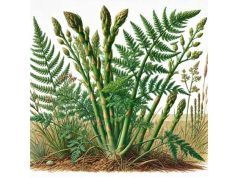
Agave is a succulent plant genus renowned for its striking appearance, cultural significance, and wide-ranging applications—from sweetening beverages to crafting artisanal textiles. Most commonly identified with Mexico and the American Southwest, these hardy plants exhibit an impressive capacity to thrive in arid climates with minimal water. Their architectural leaves, often forming a rosette pattern, store valuable moisture that sustains the plant during prolonged droughts. Many species produce a dramatic, tall flowering stalk once in their lifetime, creating a spectacular display that ends with the plant’s death—an event symbolizing rebirth in various cultural narratives.
Notable for centuries as a cornerstone of Mesoamerican civilizations, Agave has served as a critical food, fiber, and medicinal resource. Today, the genus underpins multi-billion-dollar industries, particularly in producing the famous alcoholic beverages tequila, mezcal, and pulque. Beyond liquor, agave nectar (or agave syrup) has become a popular sweetener alternative worldwide. Compounds within agave, including inulin and saponins, spark interest among health enthusiasts for possible digestive, prebiotic, and immune-modulating properties. However, usage demands caution: some species or forms can irritate the skin or cause allergic reactions, highlighting the importance of understanding each type’s unique traits.
- Versatile sweetening potential in the form of agave syrup (nectar)
- Historical significance in alcoholic beverage production (tequila, mezcal, pulque)
- Adaptogenic qualities benefiting survival in harsh deserts, translating to potential nutritional and medicinal value
- Fiber sources (sisal, henequen) used in ropes, textiles, and other durable goods
- Possible health-supporting compounds like inulin (a prebiotic fiber) and beneficial phytochemicals
Table of Contents
- Agave: Botanical Overview and Notable Features
- Agave: Cultural Legacy and Historical Context
- Agave: Key Phytochemicals and Chemical Constituents
- Agave: Major Health Benefits and Core Properties
- Agave: Applications, Uses, and Safety Considerations
- Agave: Significant Research and Recent Studies
- Agave: Frequently Asked Questions
Agave: Botanical Overview and Notable Features
Family and Classification
Agave belongs to the Asparagaceae family, subfamily Agavoideae—though historically, it was categorized under the Agavaceae or in the broader Lily family. The genus comprises over 200 species, each adapted to survive in semiarid or tropical regions. Commonly referred to as “century plants,” many agave species flower only once (monocarpic) near the end of their life cycle, which can span a decade or far longer.
Native Range
Agave primarily originates from:
- Mexico: Home to the largest number of species, reflecting the country’s diverse topography and climate.
- Southern U.S. States: Texas, New Mexico, and Arizona hold some wild species, typically in desert or scrubland ecosystems.
- Caribbean and Central America: Some species also appear in the West Indies, Guatemala, and other parts of Latin America.
The plants have spread beyond their original range due to horticultural and industrial appeal, thriving in warm climates with minimal rainfall, including parts of Africa, Asia, and Mediterranean zones.
Growth Habit and Morphology
- Rosette Structure:
- Thick, fleshy leaves radiate outward from a central core, often arranged in symmetrical or spiraling patterns.
- Leaf margins frequently display spines or teeth, useful for defense against herbivores in arid habitats.
- Leaf Appearance:
- Leaves vary in color from green to bluish-gray or even variegated, depending on species.
- A fibrous interior, historically significant for rope-making, lies beneath the tough outer skin.
- Inflorescence (Bloom):
- After years of vegetative growth, a tall flowering stalk emerges—sometimes exceeding 10 meters (30+ feet) in large species.
- Thousands of small, tubular blossoms appear, typically pollinated by bats, insects, or birds. Once seed set is complete, the parent rosette dies, leaving behind offsets or “pups” that can generate new plants.
Environmental Adaptations
Agave is well-suited to desert or semiarid conditions:
- Crassulacean Acid Metabolism (CAM): Leaves open their stomata at night to reduce water loss. This distinctive photosynthetic method helps conserve moisture.
- Waxy Cuticle: Leaf surfaces often feature thick, waxy coatings that repel water loss and reflect intense sunlight.
- Deep or Extensive Root System: Some species develop wide, shallow roots to capture scarce rainfall quickly. Others rely on robust taproots for stable anchorage.
Ecological Role
Agave species play critical roles in their native environments:
- Pollinator Support: The giant, nectar-filled blooms feed diverse pollinators—especially bats (like the lesser long-nosed bat) that rely heavily on agave blossoms.
- Soil Stabilization: Root systems help anchor desert soils, mitigating erosion.
- Habitat and Shelter: Creatures can find refuge among spiky leaves or use dried flower stalks as vantage points.
Ornamental Cultivation
Agave’s sculptural form and drought tolerance encourage its use as a striking landscape plant:
- Low-Maintenance Landscaping: Thrives in rock gardens, xeriscapes, or modern minimalistic yard designs.
- Accent Plant: Serves as a focal point, pairing well with cacti, succulents, or Mediterranean herbs.
- Container Growth: Smaller species, such as Agave parviflora or dwarf cultivars, can flourish in pots under bright sunlight.
The genus’s morphological variety—ranging from modest, compact rosettes to colossal, spiny giants—ensures wide horticultural interest. Distilling these traits underscores Agave’s remarkable adaptation to harsh climates, morphological beauty, and functional significance in both traditional economies and modern-day ornamentation.
Agave: Cultural Legacy and Historical Context
Pre-Columbian and Indigenous Heritage
Agave occupies a venerable place in Mesoamerican history:
- Staple Resource: Indigenous peoples, including the Aztecs, Mayans, and various local tribes, prized agave as a multipurpose resource. Using rudimentary tools, they extracted sap, fibers, and edible hearts.
- Food and Beverage:
- Pulque Production: The sap (aguamiel) from certain species, particularly Agave salmiana, was fermented into pulque, a milky alcoholic drink revered in Aztec rituals.
- Edible Hearts (Piñas): Some species had hearts that, when roasted in pit ovens, provided a sweet, fibrous food akin to a starchy treat.
- Religious and Symbolic Dimensions:
- Deities like Mayahuel in Aztec mythology were associated with the maguey (agave) and fertility.
- Pulque served as an offering in religious rites, signifying spiritual communion.
Spanish Colonial Influence and Global Spread
With the Spanish conquest:
- Transformation of Alcoholic Beverages: Spanish settlers refined distillation, leading to the invention of mezcal and eventually tequila from Agave tequilana Weber var. azul.
- Industrialization of Fiber Production: Henequen (a form of Agave fourcroydes) and sisal (Agave sisalana) thrived on large estates, fueling rope and twine exports from Mexico and the Caribbean.
Rise of Tequila and Mezcal
In modern times, tequila and mezcal soared to global prominence:
- Tequila Origins:
- Produced exclusively from blue agave in designated regions—predominantly Jalisco, Mexico.
- Achieved Denomination of Origin status, controlling production methods, geographic boundaries, and labeling standards.
- Mezcal’s Broader Spectrum:
- Encompasses various agave species, each lending distinct flavor notes (smoky, earthy, sweet).
- Artisanal mezcals often reflect cultural traditions passed through generations, emphasizing small-batch methods like earthen pit roasting.
- Cultural Icons:
- Both beverages symbolize Mexican heritage. Distilleries attract tourism, local festivals celebrate harvest times, and bartenders worldwide incorporate agave-based liquors into craft cocktails.
Agave Syrup (Nectar) Emergence
Over the past few decades:
- Health-Conscious Markets: Growing popularity of “alternative sweeteners” led to commercializing agave syrup.
- Export Boom: Bottles of “agave nectar,” often marketing lower glycemic index claims, found a niche among vegan, paleo, or holistic diet adherents.
- Debates on Health Impact: While less refined than table sugar, high fructose content in some syrups spurs controversy regarding whether it truly is a healthier sweetener.
Contemporary Crafts and Cultural Expressions
Beyond beverages and sweeteners, agave fosters:
- Traditional Crafts: Fibers from sisal, henequen, and ixtle remain crucial for artisanal rope, mat weaving, and other handicrafts in rural communities.
- Music and Folklore: Corridos and folk songs mention the maguey fields as a backdrop for romance and labor; the plant remains entwined with national identity in parts of Mexico.
- Eco-Tourism: Cultural tours revolve around visiting agave farms, sampling local gastronomic experiences, and learning about centuries-old cultivation techniques.
Global Horticultural and Ecological Role
Agave’s resilience spurred interest in landscaping outside the Americas:
- Ornamental Planting: In Mediterranean climates, desert-themed public parks, and private gardens, large agaves supply visual drama.
- Erosion Control: Local authorities sometimes harness robust agave root systems to stabilize slopes or reclaimed land.
- Encouraging Sustainability: Interest in drought-tolerant species fosters expansions of agave across climate-challenged regions.
From pivotal indigenous staple to modern gastronomic star, agave’s evolution across millennia highlights its unmatched versatility and cultural resonance. This heritage underscores why scientists, farmers, and craft producers continue exploring the plant’s potential, bridging ancient wisdom with contemporary innovation.
Agave: Key Phytochemicals and Chemical Constituents
Agave’s robust nature in desert conditions reflects specialized adaptations at the biochemical level. Certain compounds help it conserve water or deter pests, while others hold nutritional or industrial interest for humans.
Primary Sugars and Carbohydrates
- Fructans (Inulin):
- A soluble fiber prevalent in the agave core (the piña).
- Contributes to the sweet profile of agave sap, pulque, or syrup.
- Implicated in potential prebiotic effects, supporting gut flora by selectively nourishing beneficial bacteria.
- Fructose and Glucose:
- The ratio of these simple sugars shapes the flavor and glycemic response of agave-derived sweeteners.
- Overconsumption of fructose-laden syrups can strain liver metabolism, fueling debates on whether agave is “healthier” than conventional sugar.
Saponins
Agave species contain saponins, a class of compounds known for their:
- Foaming Properties: Historically exploited in cleaning or soap-like applications.
- Potential Health Effects: Some saponins show anti-inflammatory, antimicrobial, or cholesterol-lowering properties in lab tests. Specific forms in agave may modulate immune responses, though evidence is preliminary.
Polyphenols and Antioxidants
Though not as extensively studied as in green tea or cacao, some agave species show moderate polyphenolic content:
- Flavonoids (e.g., quercetin, kaempferol): Offer antioxidant capacity, protecting cells from free radical stress.
- Phenolic Acids: Contribute subtle bitterness to the raw sap, possibly beneficial in small amounts for metabolic health.
Minerals and Trace Elements
Agave piñas, particularly those used to produce pulque, can harbor modest concentrations of:
- Calcium, Potassium, Magnesium: Supporting basic nutritional needs.
- Trace Minerals (Zinc, Manganese): Variation depends on soil fertility and species.
Enzymes and Steroidal Compounds
- Enzymes: In the living plant, certain enzymes break down starches to fermentable sugars, crucial in pulque or tequila production.
- Steroidal Glycosides: Some species exhibit ephemeral steroidal compounds that can have both beneficial or potentially toxic effects, depending on dosage and the specific structure.
Mucilage and Waxy Coatings
- Protective Polymers: Leaves often feature waxy layers or mucilaginous materials that reduce water loss.
- Human Applications: Waxy exudates historically used in adhesives or polishes in some local traditions.
Variation Among Species and Processing Methods
Not all Agave plants boast identical chemical profiles. Key influencing factors include:
- Species Differences: Agave tequilana emphasizes sugar content ideal for fermentation, while Agave sisalana yields more robust fibers with lower sugar.
- Harvest Timing: Overly young or older plants may differ in sugar concentration, affecting flavor or industrial yield.
- Extraction Technique: Whether the sap is heated for syrup or fermented for alcohol, each approach modifies original sugars, saponins, and other compounds.
- Soil and Climate: Warmer regions with specific altitudes can yield higher sugar or distinct flavor nuances—one reason “highland” or “lowland” tequila differ in taste.
These varied phytochemicals underscore why agave stands out in multiple domains: from sweeteners to biodegradable fibers and potential nutraceutical sources. Understanding each species’ unique composition paves the way for more targeted, safer, and beneficial uses.
Agave: Major Health Benefits and Core Properties
With centuries of usage behind it, agave has cultivated a reputation for an array of benefits—some validated through modern science, others grounded in cultural practice. Below is a balanced look at key health and wellness claims.
1. Prebiotic and Digestive Support
- Inulin’s Role: The fructooligosaccharides in agave, especially in raw or minimally processed forms, may foster healthy gut bacteria growth.
- Possible Advantages: Improving bowel regularity, enhancing nutrient absorption, and potentially reducing certain digestive discomforts.
- Limitations: Overconsuming high-fructose sweeteners or lacking synergy with a balanced diet can negate these benefits.
2. Natural Sweetener Alternative
- Low-Glycemic Marketing: Agave syrup’s high fructose content yields a lower immediate spike in blood glucose for some individuals compared to table sugar.
- Controversies: Excess fructose consumption can strain the liver and potentially contribute to metabolic syndrome. Moderation and understanding personal health profiles remain key.
3. Soothing Skin and Minor Wound Care (Traditional)
- Topical Poultices: Folk remedies in certain Mexican or Southwestern communities used agave pulp or sap for mild burns or insect bites.
- Potential Mechanisms: Saponins and antibacterial constituents may hinder bacterial growth, though robust clinical validation is limited.
4. Hydration and Electrolyte Replenishment
- Historic Practice: In desert survival scenarios, small amounts of agave sap provided partial hydration and electrolytes, though direct use of raw sap can irritate or cause allergic reactions.
- Modern Applications: Rare, as other isotonic beverages are safer and more standardized, but the concept underscores the plant’s desert survival synergy.
5. Anti-Inflammatory Effects
- Laboratory Indications: Some in vitro studies note that saponins or polyphenols in agave extracts could modulate inflammatory pathways.
- Applied Relevance: Could potentially assist in mild arthritic or inflammatory conditions. However, conclusive human trials remain scarce.
6. Culturally-Specific Therapeutic Uses
- Traditional Mesoamerican Medicine:
- Pulque and certain fermented forms were believed to help with digestive troubles, postpartum recovery, or mild fevers.
- Leaves or roots might be boiled into decoctions for antiseptic washes.
- Folk Tonics: Some indigenous tribes considered certain agave-based drinks as nourishing tonics for the elderly or ill, likely due to the easily digestible sugars.
7. Potential Weight Management Tool?
- Claims of Reduced Sugar Impact: Some dieters choose agave syrup believing it might help curb sugar cravings and manage caloric intake.
- Caveats: While it may sweeten with fewer blood sugar spikes for some, fructose-laden diets can also paradoxically impede weight goals if not used judiciously.
Balancing the Pros and Cons
- Moderation is Essential: Excess ingestion of any sweetener, including agave, can hamper health goals—particularly if overshadowing whole-food nutrition.
- Quality and Processing: Minimally processed or raw forms might preserve beneficial inulin and saponins, whereas heavily refined syrups lose these attributes.
- Individual Metabolic Response: People with pre-diabetic or diabetic conditions must monitor total fructose intake, as it can complicate metabolic regulation.
In sum, while agave offers certain unique advantages—especially the potential for a prebiotic effect and partial glycemic benefits—these boons are best realized under mindful consumption. Overly simplistic marketing around “healthy sweeteners” can overshadow the nuanced reality that healthy diets rely on balance, variety, and moderate sugar use.
Agave: Applications, Uses, and Safety Considerations
Culinary and Food Products
- Sweetening Agent:
- Agave Syrup (Nectar): Utilized widely as an alternative to refined sugar or honey. Often found in baked goods, beverages, or salad dressings.
- Flavor Profile: A mild, neutral sweetness that integrates easily without overshadowing other flavors. Some variants carry a caramel-like nuance.
- Alcoholic Beverages:
- Tequila: Made exclusively from the blue agave (Agave tequilana). Must be distilled in designated regions of Mexico under strict labeling rules.
- Mezcal: A broader category using diverse agave species, often roasted in earthen pits for a smoky character.
- Pulque: A lightly alcoholic, fermented beverage from fresh sap, typically with a tangy or yeasty flavor.
- Traditional Foods and Sides:
- In rural areas, roasted agave hearts (often called “mezcal de olla”) can be served as a sweet, fibrous treat.
Fiber and Industrial Applications
- Sisal and Henequen:
- Agave sisalana and Agave fourcroydes produce long, strong fibers for rope, twine, mats, and crafts.
- Gaining renewed interest as eco-friendly alternatives to synthetic fibers.
- Biomass and Biofuel:
- Some research explores using agave as a source of cellulose and lignin for bioethanol, capitalizing on drought tolerance and high biomass yield.
- Paper and Textiles:
- In small-scale artisan contexts, pulp from certain species can be processed into handmade paper or specialty cloth.
Herbal Remedies and Alternative Health
- Teas and Decoctions:
- Warm infusions of dried agave root or leaves are a part of certain folk remedy traditions, although caution is advised due to possible irritants.
- Skin Salves:
- Traditional topical usage leverages saponins’ mild antiseptic properties. Modern herbal ointments remain niche, lacking standardization.
- Agave Syrup in Syrups (Cough or Throat Soothers):
- Homemade “cough syrups” occasionally combine agave syrup with ginger, lemon, or onion for mild symptom relief.
Safety and Contraindications
- Skin Irritation Risk:
- Fresh leaves or sap can cause contact dermatitis or rashes. The sharp leaf spines also pose puncture hazards. Protective gloves are recommended for handling raw plants.
- Allergic Responses:
- Rare but possible, particularly for individuals allergic to other plants in the Asparagaceae family or those prone to contact urticaria.
- Blood Sugar Implications:
- While promoting a lower glycemic index, high fructose consumption can burden the liver. Diabetics or those with metabolic syndrome should consult professionals before regularly using agave sweeteners.
- Tequila and Alcoholic Products:
- Overindulgence in alcoholic beverages can lead to typical alcohol-related risks, irrespective of any potential phytochemical benefits.
- Quality Variation:
- Some “agave” products are diluted or adulterated with other syrups. Verifying product purity ensures authenticity.
Moderation and Best Practices
- In Culinary Context: A teaspoon or two of agave syrup in coffee or a recipe is typically safe for most people. Over-consuming sweeteners remains ill-advised.
- Potentially Beneficial Twists: Combining agave with other beneficial foods, like whole grains or legumes, can limit sugar spikes.
- Storage: Agave syrups are generally stable at room temperature. To avoid crystallization or fermentation, keep sealed in a cool, dark place.
Ultimately, while agave’s range of uses—from sweeteners to rope materials—demonstrates impressive versatility, caution is warranted. Its classification as a “healthful” alternative sweetener can be oversimplified. Balancing the plant’s beneficial aspects with prudent, informed usage fosters a more accurate and safe embrace of all that agave offers.
Agave: Significant Research and Recent Studies
Despite centuries of tradition, many aspects of agave’s health claims and industrial potential remain under scientific exploration. Below, we highlight some notable findings and directions:
1. Prebiotic Effects and Gut Health
- Study (2014), Journal of Food Science and Technology
Investigated inulin-rich extracts from Agave tequilana. Lab results showed enhanced growth of beneficial bacteria (e.g., Lactobacillus) in controlled conditions. The authors suggested that moderate dietary intake might positively modulate gut microbiota, echoing existing data about other inulin sources.
2. Fructose Content and Metabolic Outcomes
- Research (2016), Nutrition & Metabolism
Compared metabolic markers in individuals consuming moderate amounts of agave syrup versus high-fructose corn syrup. Over a 10-week period, minimal differences in insulin sensitivity or weight changes emerged. The authors concluded more extensive, controlled trials are essential to clarify whether agave syrup confers any unique metabolic advantages.
3. Antioxidant and Antimicrobial Properties
- Paper (2019), Plant Foods for Human Nutrition
Assessed phenolic extracts from various agave species, including Agave americana and Agave fourcroydes, measuring antioxidant capacity and antibacterial action against Staphylococcus aureus and E. coli. Though moderate results were observed, synergy with other extracts improved efficacy, implying multi-herb formulations might enhance practical uses.
4. Tequila and Bone Health
- Preliminary Study (2018), Journal of Agricultural and Food Chemistry
Proposed that certain agave fructans could help the body absorb dietary calcium, with potential positive implications for bone health. While these experiments used animal models, it piqued interest in agave-based prebiotics and their effect on mineral absorption.
5. Industrial and Environmental Research
- Biofuel Potential (2020), Renewable Energy Reports
Investigations into cellulose-rich agave bagasse (the leftover fibrous mass post-harvest or post-distillation) suggest a promising source for second-generation biofuels. Trials indicate feasible ethanol yields, with further optimization of enzyme treatments and fermentation protocols.
Agave: Frequently Asked Questions
What is the difference between agave nectar and honey?
Agave nectar (syrup) is derived from agave sap, while honey is produced by bees from flower nectar. Both are sweeteners, but agave syrup typically has a higher fructose ratio. Honey offers different enzymes, antioxidants, and flavor notes. Consumers often compare them for taste preferences and potential health impacts.
Can agave help with weight loss?
Agave syrup has been advertised for its lower glycemic impact. However, its high fructose content can still pose metabolic challenges if overconsumed. It’s not a magic weight-loss tool. Moderation, balanced nutrition, and overall calorie control remain key for healthy weight management.
How do I safely handle an agave plant at home?
Wear gloves and long sleeves. Many species have sharp spines or tips on leaves, and the sap can be irritating. If dividing or transplanting, use tools to avoid direct contact and rinse off any sap from skin immediately to prevent rash or itching.
Are all agave plants used for tequila production?
No. Only Agave tequilana Weber var. azul (blue agave) is legally permissible for tequila. Other species yield mezcal or remain dedicated to fiber or ornamental usage. Each variety offers distinct sugar compositions and flavor profiles.
Disclaimer:
The information provided in this article is for educational purposes only and should not be taken as a substitute for professional medical advice. Always consult a qualified healthcare provider before modifying your diet, seeking alternative treatments, or using herbal products.
If you found this article on Agave insightful, please consider sharing it on Facebook, X (formerly Twitter), or any other platform you enjoy. Spreading knowledge helps others discover the rich heritage and practical benefits of this remarkable plant!










